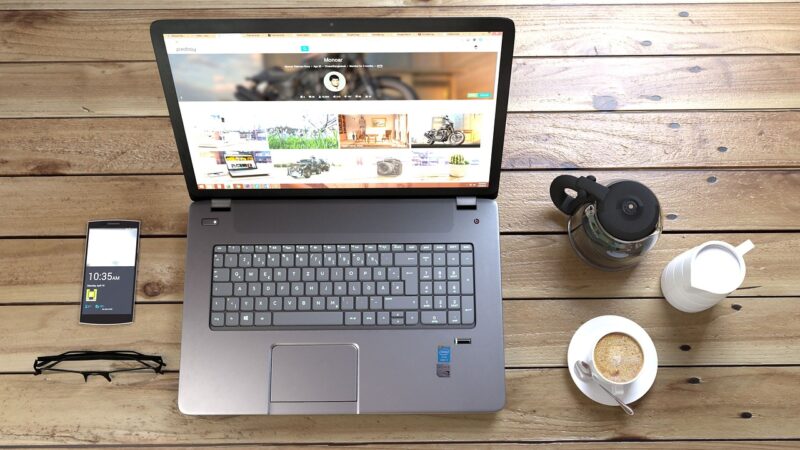Why Freelancing Is the Ultimate Career Choice for Creative Professionals
November 17, 2024

In recent years, freelancing has soared in popularity, especially among creative professionals ranging from graphic designers to writers, digital marketers, and videographers. The allure of freelancing lies in the freedom and flexibility it offers, empowering individuals to tailor their careers to fit their unique lifestyles and personal aspirations. In this extensive guide, we will delve into the myriad reasons why freelancing is the ultimate career choice for creative professionals.
1. The Freedom to Choose
One of the primary reasons many creative professionals are gravitating toward freelancing is the unparalleled freedom it provides. Unlike traditional employment, freelancers have the liberty to pick their projects, clients, and work hours. This autonomy not only fosters creativity but also ensures that individuals engage in work they are genuinely passionate about.
**Advantages of Freedom in Freelancing:**
- Project Selection: Freelancers can choose projects that resonate with their interests and skill sets, allowing them to cultivate a portfolio that reflects their unique talents and aspirations.
- Flexible Schedule: With freelancing, professionals can establish their own work schedules. Whether they prefer to work early in the morning or late at night, freelancers can set hours that optimize their creative flow.
- Geographic Independence: Freelancers can work from anywhere—a cozy home office, a beach in Bali, or a bustling café in Paris. This geographic freedom allows for a work-life balance that traditional jobs may not provide.
2. Increased Earning Potential
Freelancers often have the ability to command higher rates than traditional employees who receive salaries. By diversifying clients and projects, creative individuals can increase their income based on the value they provide, rather than being tethered to a fixed salary.
**Strategies for Maximizing Earnings as a Freelancer:**
- Specialization: Building a niche within the creative field allows freelancers to become recognized experts, increasing demand for their specialized services and allowing for higher fees.
- Negotiation: Freelancers can negotiate rates directly with clients, ensuring that they are compensated fairly for their work, which is often a right not afforded to traditional employees.
- Multiple Income Streams: Freelancers can diversify the types of services they offer—such as offering design consultations, creating online courses, or writing eBooks—creating multiple streams of income that can enhance financial stability.
3. Personal Growth and Skill Enhancement
Freelancing presents an incredible opportunity for personal development and skill enhancement. Every project, whether it’s creating a brand identity for a startup or producing a marketing campaign for a large corporation, serves as a chance to learn and grow.
**Ways Freelancing Facilitates Personal Growth:**
- Adaptability: Freelancers often encounter a wide range of challenges. This adaptability enhances problem-solving skills and promotes resourcefulness, both of which are invaluable in any career.
- Networking Opportunities: Collaborating with diverse clients and fellow freelancers fosters an extensive professional network, opening doors to future projects or partnerships.
- Continuous Learning: The dynamic nature of freelancing necessitates that creative professionals stay up-to-date with industry trends and emerging technologies, promoting lifelong learning habits.
4. Work-Life Balance
Freelancing allows creative professionals to cultivate a work-life balance that suits their needs. Traditional 9-to-5 jobs often impose rigid schedules, making it difficult to juggle personal commitments. In contrast, freelancers can prioritize their personal lives alongside their professional obligations.
**Benefits of a Healthy Work-Life Balance:**
- Reduced Stress: By setting manageable workloads and creating flexible schedules, freelancers can mitigate stress and avoid burnout.
- Time for Personal Projects: Freelancers have the freedom to pursue personal projects, whether it’s an art exhibition, a photography journey, or studying a new technique, enabling them to grow creatively.
- Family Time: The flexibility of freelancing enables professionals to be more present in their family lives, allowing for quality time without the constraints of a traditional job.
5. Building a Brand and Reputation
Freelancing offers creative professionals the chance to build a personal brand and establish a reputation in their industry. A strong personal brand can help freelancers stand out in a crowded market, leading to more opportunities and higher demand for their services.
**Tips for Building Your Brand as a Freelancer:**
- Consistent Online Presence: Having a professional website and active social media accounts helps showcase one’s work, build a following, and drive potential clients to reach out.
- Quality Over Quantity: Delivering quality work consistently builds trust and strengthens reputation, turning satisfied clients into repeat customers and potential referrals.
- Engage with Industry Communities: By actively participating in industry forums and social platforms, freelancers can network, and build relationships, learning from peers while showcasing their expertise.
6. Tailored Work Environment
Freelancers have the unique opportunity to create a work environment that inspires creativity and productivity. Unlike traditional settings that may be restrictive, freelancers can curate their workspace to enhance motivation and foster innovation.
**Designing Your Ideal Workspace:**
- Personalization: Freelancers can decorate their workspaces according to their taste—whether that means a minimalist aesthetic or a vibrant surroundings with artwork and plants.
- Comfort: Choosing ergonomic furniture and technology that fits one’s working style is crucial for comfort and productivity, allowing creative professionals to focus on their tasks.
- Environment Variation: With the ability to work anywhere, freelancers can change their environments to combat monotony and stimulate creativity. From home offices to co-working spaces, diversity in setting can spark new ideas.
Conclusion
Freelancing stands out as a compelling career choice for creative professionals due to the boundless opportunities it presents for freedom, financial growth, personal development, work-life balance, brand building, and a tailored work environment. As the world continues to embrace remote work and gig economies, creatives have more opportunities than ever to forge their own paths. If you’re a creative professional considering a freelance career, take the plunge and invest in yourself—it could very well lead to a fulfilling and prosperous journey into the world of freelancing.







